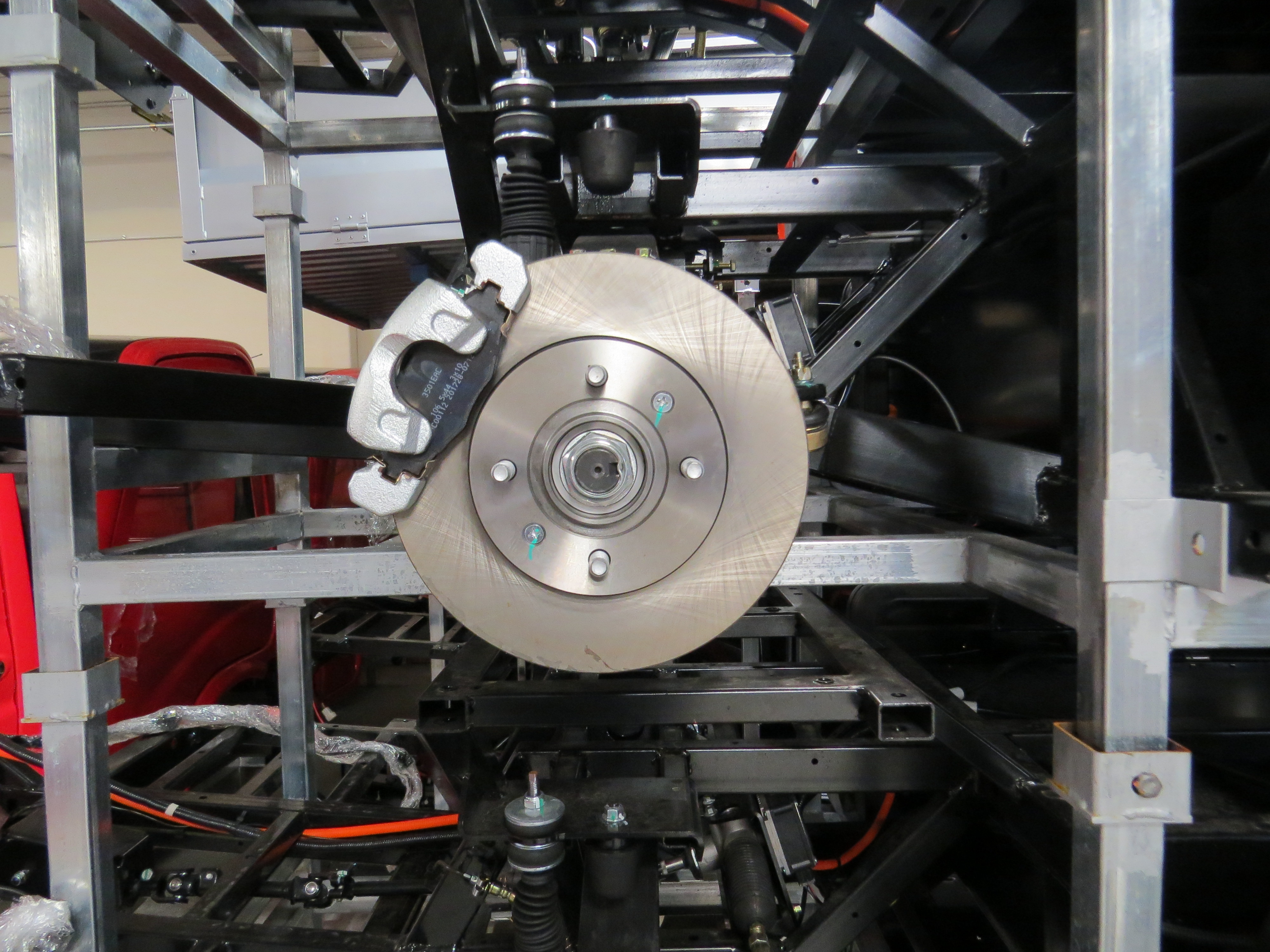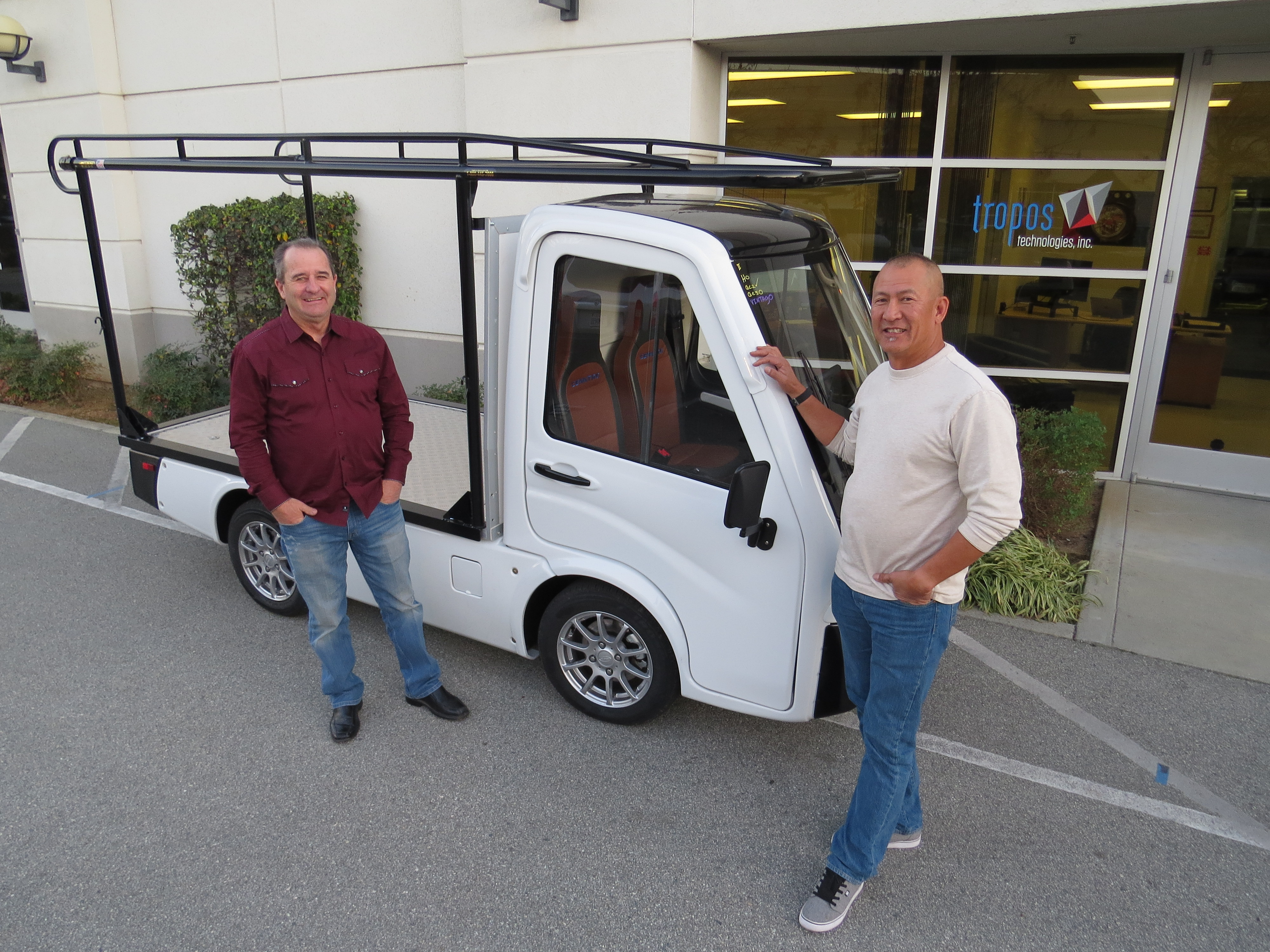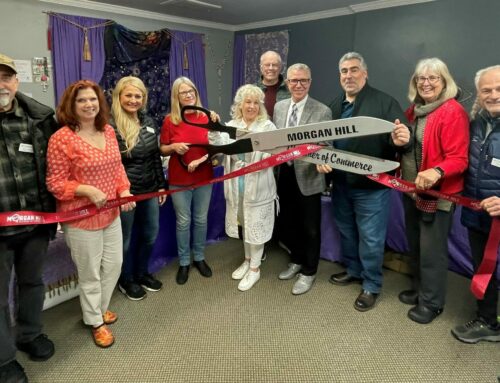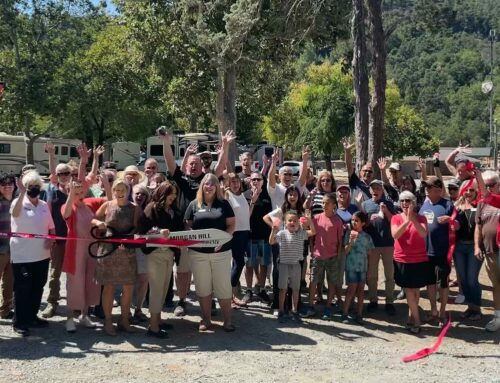Tropos looks to capture ag, manufacturing, institution and military markets
Published in the January 31st – February 13th , 2018 issue of Morgan Hill Life
When South Valley people think of electric vehicles, they most likely envision the sleek design of a Tesla as the future of clean-tech transportation. But John Bautista said stop thinking “sexy” and start thinking industrial when he launched Tropos Technologies Jan. 1, 2017. A year later the local firm is ramping up to sell its electric utility vehicles across the U.S.
With headquarters located in a small office complex off Church Street in Morgan Hill, Bautista, is creating Tropos as a company that will provide low-cost, low-maintenance electric utility vehicle for use in industries from agriculture and manufacturing to sports stadiums and institutions such as colleges campuses and military bases. The start-up calls its business model an “assembling dealerships.” It has a contractor manufacturing distributor in New Jersey and Sacramento and is developing a California-based distributor in Stockton.
“Tropos Technologies is an electric vehicle service provider,” Bautista. “Basically, we can do everything from design of componentry to helping other companies with the design of their components and build complete vehicles from ground up to conversion.”

What: Tropos Technologies Where: 16260 Church St., Suite 140 Contact: (408) 571-6104 or visit www.tropostech.com
The name Tropos derives from the troposphere — the first 10 miles of Earth’s atmosphere, he said. It demonstrates the environmental emphasis of clean-tech vehicles.
“To me, that’s the part (of the atmosphere) that’s important because that’s the part we live in,” he said. The CEO of Tropos has worked in several clean-tech vehicle companies before his latest enterprise. He designed and built one of the first modern electric road race cars and the world’s fastest production electric motorcycle. During the past 15 years, his engineering background coupled with his entrepreneurial drive led to him to join clean transportation companies seeking his participation and consultation.
Bautista did a market study to evaluate where the EV market will be applying product in the future. He identified the compact utility market as a very attractive market for future growth.
“It was occupied by very few competitors, and those competitors were not interested in improving their product, so we could bring some value there,” he said. “And it’s a big market and the potential is huge.” The opportunity for growth makes the company attractive to Silicon Valley investors. Within 10 days in November, Tropos raised $1.2 million to develop its electric low-speed vehicle dealer network to bring the New Jersey-based Cenntro Automotive Corporation METRO compact utility vehicle (CUV) to the U.S. market. Already available in Europe and Asia, the all-electric vehicle is a highly flexible, and modular CUV ideally suited for local delivery, maintenance crew transportation, parking enforcement, and people transport on campuses or in communities.
“This new funding will help us grow our network of E-LSV dealerships and service centers, enabling us to distribute vehicles across the U.S., while supporting start-up EV manufacturers,” Bautista said. As a multi-discipline service provider focused on alternative transportation, the expertise of the Tropos team in all-electric and range extended drive-trains and vehicles is among the best in the industry, said Peter Wang, CEO of Cenntro Automotive.
“Tropos is one of a few companies to have vehicle assembly on both the East and West coasts, and its extensive contract manufacturing capabilities made it an ideal partner for managing METRO sales, distribution and service in the U.S. We look forward to working with Tropos to scale its manufacturing activities in America,” he said.
Among Tropos’s lead investors is Susan Xu, who joined the board of directors at the company and serves as the vice president of operations. Xu is one of the founders of web-based corporate meetings platform WebEx and played a role in leading WebEx’s $3.2 billion acquisition by Cisco Systems in 2007. “I believe Tropos Technologies has a very bright future as an engineering and distribution company focused on sustainable transportation solutions,” she said. “Starting with the Cenntro Metro and combined with the wide range of engineering services offered by Tropos, we’re focused on channeling their energies and resources along the right path to ensure their success.”
The electric utility vehicles Tropos provides are “competitively priced” to comparable models and retail in the $15,000 to $18,000 range depending on how they come equipped, said Scott Harden, director of sales and marketing. The company sees itself in a unique application niche that will make their EVs attractive to a wide range of customers requiring utility trucks.
“We’re kind of like the Goldilocks of utility vehicles,” he said. “Everything else is much smaller in a utility task vehicle type configuration, a glorified golf cart, if you will, with a much smaller load capacity, space and power density that’s going to limit what you can do. And then to go bigger and do more, you’re going to have to go quite a bit bigger, such as a small truck that doesn’t fit into certain areas and is not electric.”

Above: Scott Harden, director of sales and marketing, and John Bautista, CEO, with one of their vehicles. Above right: A brake assembly.
Demonstrations of the Tropos vehicle show it provides a towing capacity of a max of 3,800 pounds up a 12 percent grade from a standing start, he said. Unlike the Tesla which uses a more expensive lithium- based battery component, the Tropos has a sealed lead acid battery that provides a high-capacity and virtually maintenance free supply of electric power, giving users a range of between 40 to 50 miles. A lithium option will come in the future.
“It just launches right off and goes up the hill, and that’s where electric power torque comes into play,” Harden said.
Harden sees Tropos and similar clean-tech companies helping in the evolution from a global economy requiring oil, coal and natural gas to keep running to one where innovative clean energy systems will increasingly become a part of industrial civilization.
“We don’t need to be burning fossil fuels to get to work or the store,” he said. “Let’s save fossil fuels for agriculture and cross-country trucks, things that benefit a lot of people. There has to be a transition.”






